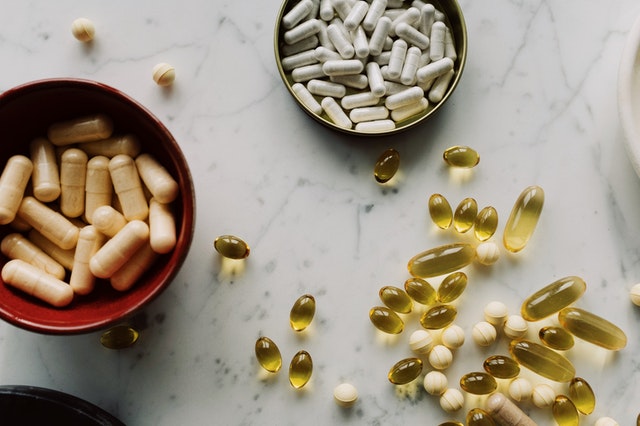The gut houses the bulk of our defenses against disease and infections. One’s immune system is the first responder when it comes to repelling invasive and harmful substances. The gut also facilitates proper digestion and nutrient absorption to help keep the entire body energized and healthy. It is important to maintain good gut health because numerous conditions can develop when it is not functioning properly.
A malfunctioning gut can cause a variety of problems to develop including: food intolerances and sensitivities (lactose, gluten, etc.), Leaky gut syndrome, parasites, irritable bowel syndrome, autoimmune disorders, and many others.
The best measure of prevention for disorders associated with the gut is to ensure that it is getting the support it needs. Below is a list of 7 supplements that provide powerful benefits for one’s gut. By maintaining good gut health, one’s risk of developing a bevy of serious diseases and illnesses can be reduced. Utilizing the following compounds and substances can help you keep your gut working at its best.
1) Probiotics
One of the greatest factors in maintaining good gut health is maintaining proper bacterial balance. Probiotics, or “good” bacteria, provide significant aid in keeping “bad” bacteria in check. Those with little probiotic representation in their system often experience an overabundance of harmful bacteria that can wreak havoc on the gut. Common probiotic reducers include antibiotics, steroids, acid-blockers, and poor diet.
Probiotic supplementation can frequently be optimized to an individual’s needs. There is a multitude of probiotic strains, many of which aid the body in different ways. Depending on the desired result, increased immune function, better hormone balance, increased energy, etc. a specific probiotic should be used. When it comes to purchasing probiotics, a good guideline is to find one that is made with high-quality ingredients and contains multiple bacteria strains as opposed to just one or two.
2) Enzymes
Macronutrients such as fats, carbohydrates, and proteins are critical not only for gut health, but our overall health as well. However, to get the most benefit out of these substances they must be broken down with enzymes. Acting as catalysts, enzymes facilitate greater absorption and utilization of nutrients. Enzymes help the body get the most benefit out of the foods it consumes and limits food waste. For those with digestive difficulties, taking an enzyme supplement with meals can significantly improve digestion and aid intestinal repair.
In a similar fashion to probiotics, enzymes support specific intestinal functions. Certain food sensitives such as gluten, dairy, or soy, can be partially or entirely alleviated through proper enzyme supplementation. Depending on your intestinal needs you may want to look for some or all the following enzymes.
- Amylase: used for breaking down starches into sugar
- Lactase: used for breaking down lactose into glucose
- Lipase: used for breaking down fats into fatty acids
- Protease: used for breaking down proteins into amino acids
3) L-Glutamine
This amino acid is a necessary piece for proper digestive and immune system function. Those who experience regular stress or chronic anxiety frequently exhibit low glutamine levels. This increases the gut’s susceptibility to leaky gut syndrome and other harmful conditions. Because l-glutamine is a primary fuel source for the cells that line the intestine, it is important that one has sufficient availability of this vital amino acid. Keeping cells well-fueled helps prevent intestinal disease and stress.
L-glutamine also promotes restoration of gut lining, helps repair gut damage, and aids in reversing harm caused by leaky gut syndrome. This may be due to its properties as an anti-inflammatory. Unnecessary and/or chronic inflammation is a leading cause of intestinal and bodily stress that can ultimately cause harmful conditions and disease to develop.
4) Antifungals
Caprylic acid, cellulose, and oregano oil are all antifungal options to use for improving gut health. These substances have been used for many years as intestinal aids. A common issue, particularly among those with leaky gut syndrome, is a flora imbalance. Antifungals aid in reestablishing intestinal order and help resolve issues such as excess yeast or candida. Furthermore, beneficial antifungals assist by relieving stress on the intestines, which allows for the body to focus on repairing damage rather than resolving imbalances.
5) Hydrochloric Acid (HCL)
The primary implement for breaking down proteins in the stomach is hydrochloric acid. This naturally produced digestive aid also facilitates mineral and nutrient absorption. Intestinal health hindering conditions and substances such as leaky gut syndrome, birth control, antibiotics, and various medications can all inhibit acid levels.
Insufficient levels of HCL can cause one to develop small intestinal bacterial overgrowth, also known as SIBO. When there is not enough HCL present on the stomach, harmful bacteria may enter the small intestine and make themselves permanent inhabitants. The presence of these bacteria in the small intestine may cause significant gut malfunction. When supplementing with HCL it is important not to overdo it, as excess acid can also cause damage to the stomach and gut. The best course of action is to speak with a physician and discuss what dosage is optimal for you.
6) Fiber
Many are aware of the importance of fiber in their diet, but they may not understand the extent of its benefits for gut health. Fiber is necessary for sustaining probiotics and keeping good bacteria alive and kicking. Without an adequate supply of food, good bacteria would die out and be incapable of protecting the gut and the body from harmful invaders.
Fruits and vegetables are possibly the most frequently cited source of fiber in one’s diet but there are other options as well. Sprouted chia seeds, flaxseeds, and hemp seeds, all provide an impressive amount of fiber that supports gut health and probiotic livelihood.
7) DGL (Licorice Root)
Deglycyrrhizinated licorice, also known as DGL, provides multiple benefits for one’s gut. Before becoming DGL, licorice root must have its glycyrrhizin removed. This substance is the primary source of licorice’s sweetness but also promotes increased blood pressure and edema (swelling of tissues caused by trapped fluids). By removing glycyrrhizin from licorice root, a safer, more beneficial substance is formed.
DGL is noted for helping to maintain the mucosal lining in the stomach and duodenum (the first section of the small intestine closest to the stomach). Additionally, it may help resolve adrenal fatigue as it aids in absorption and metabolization of cortisol, also known as the stress hormone. This may be the reason that DGL is such a powerful supplement for those whose poor gut health is induced by excess or chronic stress.
Go with Your Gut
If we ignore our gut, we are putting ourselves at risk. Supporting your immune system, digestion, and overall health by maintaining good gut health may seem challenging but with greater understanding and familiarity it becomes much easier. Being aware of your body’s specific needs regarding gut health will help you achieve better intestinal balance and function. Be friendly to your gut by providing it with the supplements it needs to thrive.





